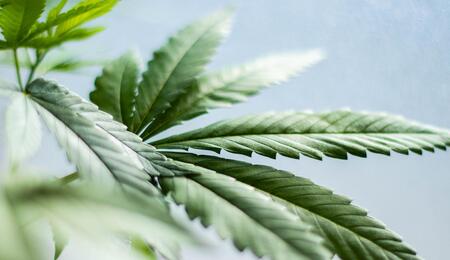Homegrowing cannabis in Italy is set to be legal.

The land of pasta, pizza and pot — Italy has become one of few European countries to allow cultivating a small number of cannabis plants for personal use.
Keeping even a single marijuana flower at home is against the law in most countries around Europe. Only Spain and the Czech Republic have regulations that permit growing up to five plants. Italy will now allow growing up to four cannabis plants at home after the Lower House's justice committee adopted such a measure.
Advocates who support the new legislation say it's a necessary step to allow people to homegrow cannabis and take advantage of the plant's medical benefits.
The reform comes two years after Italy's supreme court ruled that small scale cultivation of marijuana was legal. The landmark ruling of 2019 led to a division between supporters and opponents. Anger about introducing favourable cannabis legislation was expressed by the country's conservatives.
Up until now, cannabis was a sort of a grey area in Italy. Decriminalised, but only medicinal cannabis with an official legal status. A law from 2014 classified cannabis as a less dangerous drug. In practice, the law has meant that Italian authorities would, in some instances, only give a warning if a person was caught with an insignificant amount of the drug. At other times, this would result in the stash being confiscated.
Owning up to 1.5 grams has been defined as the maximum amount allowed for personal consumption. Below this amount, an offender would not be prosecuted. If caught on more than one occasion, it could lead to more stringent measures, and the information a person was caught would be saved in the criminal justice system records.
The country has so-called "light marijuana" stores, with light weed being defined as anything with less than 0.5% THC. But selling any cannabis has been punishable with hefty fines.
Like most other parts of Europe, home cultivation of cannabis or its sales and distribution remains illegal in the UK. Only medical cannabis has been made legal on the islands since 2018.
If a person is caught selling or distributing cannabis, there are fines of up to £2,500 and five years in prison. Cannabis is currently the most seized substance during police searches. Police are making on average a record 350 seizures a day, according to recent record-breaking figures from the Home Office. At least some quantity of cannabis is found in 71 per cent of all drug seizures across England and Wales in the past 12 months.
Some MPs back full decriminalisation of cannabis. The UK is currently one of the world's top exporters of medicinal cannabis, but only with more comprehensive regulation, such as the one Italy is now adopting, can it remain competitive in the international market.
Although the UK was supplying 44.9% of all medical cannabis in 2018, Sativex and Epidiolex, the two primary medicines produced in the UK, retained a low rate of use at home.
Cannabis reform in the UK first and foremost needs to strengthen the regulatory framework for medicinal cannabis. Reform needs to improve access to medical cannabis, launch an Office for Medicinal Cannabis, and allocate more funds for clinical trials and scientific research.
Industry-wise, reform is needed to allow the cultivation of hemp flowers for extracting CBD under an Industrial Hemp license. Regulating THC and the accompanying drug license system would entail an increase of the THC limit from 0.2% to 1%.
In the US, medicinal cannabis is legal in 36 states, while recreational use is legalised in 18 states, the District of Columbia, the Northern Mariana Islands, and Guam. Another 13 states and the US Virgin Islands have decriminalised cannabis use. Connecticut, New Mexico and Virginia are among the latest countries to advance their adult-use legislation.



